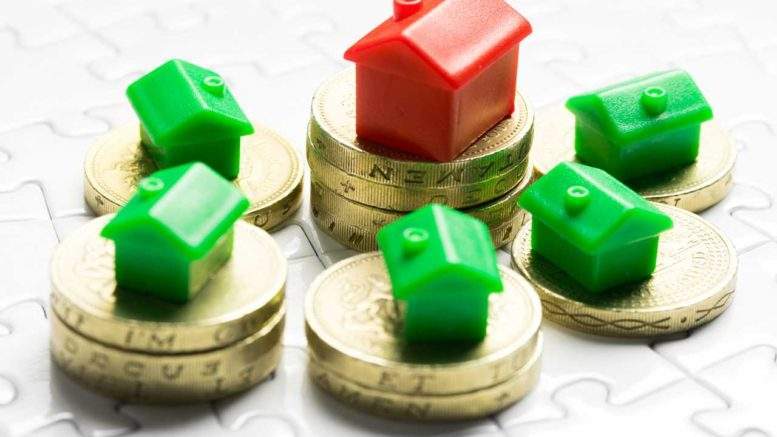
Is property really a better investment than pensions? Too many people assume so without considering the costs involved, writes Ross Clark.
Every week, the Sunday Times asks a business figure, politician or celebrity a few nosey questions about their personal finances. Few will part with the information everyone wants to know: how much did you earn last year? What catch my eye, however, are the responses to the question: which is best, property or a pension?
The vast majority – perhaps nine in every ten – come up with a very firm answer: property. As for pensions, they don’t understand them, or they think stock market-based investments are too risky, or they simply have experience of making a pile on their properties. Perhaps it shouldn’t surprise me – after all, according to the Nationwide, UK house prices have risen by 178 per cent this century and London prices by 234 per cent.
The FTSE 100 index, on the other hand, is (at the time of writing) a mere 2.4 per cent higher than it was on 31 December 1999. OK, the FTSE 100 is not a great guide to the stock market as a whole, and is almost designed to underperform thanks to the rapid churn in companies that make up the index.
Small caps have done better, but it is still hard to escape the conclusion that there is a vast gulf between the fortunes made in property in the past two decades and the lukewarm returns from shares. No wonder celebrities are sold on the idea of pumping their cash into property – and overlooking the occasions where it has gone horribly wrong, such as when developers on the Med have taken deposits for ‘off-plan’ homes that they then fail to complete.
But when they weigh up the pros and cons of various investments, are they really comparing like with like? Most people’s attitude towards property investment is skewed by our tendency to compare gross returns on property with net returns on other investments. It is very easy to marvel at how an individual property has risen in value over the years without thinking of the substantial sums invested over that time to enhance and just to maintain the value of the property – the new kitchens, bathrooms, carpets, mending the hole in the roof and so on.
Had you kept your house in a Nineties timewarp and not spent a penny on it, you might be disappointed by the price it would fetch now compared with smarter, more modern homes in the same street. Listed companies, too, have assets whose value needs to be preserved through maintenance and investment. Yet, unlike the rise in property values you can read off the Land Registry, the capital returns made on shares are net of all investment costs. The same is true of rental income and share dividends.
When you read, for example, that flats in Kensington are earning a rental yield of 2.6 per cent, that tends to exclude the costs of renting out property: the service charges, ground rent, agents’ fees and so on. Take those into account and a 2.6 per cent rental yield is likely to shrink to less than 1 per cent. By contrast, the dividend yield on a share comes net of all the company’s expenses – it doesn’t cost a lot to maintain the share certificate itself.
You can lessen the cost of letting a property, say by finding your own tenant and then taking the calls when he complains the shower isn’t working, but then it becomes less of an investment and more of a job. The CEO of BP, by contrast, is not going to ring you up in the middle of the night and ask you to fix an oil pipeline. It would be possible to devise a house price index that took account of the amount being spent maintaining and improving homes, and a rental return index which takes account of the costs of letting.
But no one is yet producing such an index and it would be hard to source data retrospectively on everything homeowners have spent on properties over the past 20 years. When asked, then, whether property or a pension makes the best investment, it is a stab in the dark.
Such have been the returns on property since 1999, it is hard to imagine it has not outperformed shares – the latter having suffered two hefty bear markets since then. But it still surprises me when I hear of the vast sums people have spent on their homes – all those fancy makeovers, repeated at intervals of only a few years. If the Sunday Times’s celebrities sat down to work out what they have spent, they might get a shock.
Ross Clark is a writer for the Spectator, Daily Mail, Times and more
This article originally appeared in issue 66 of Spear’s magazine. Click here to buy.






